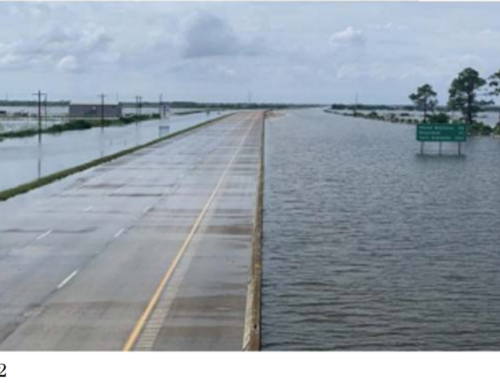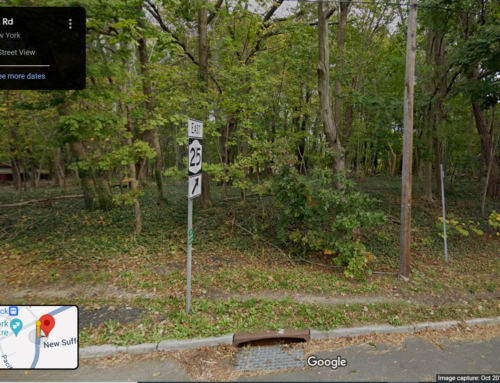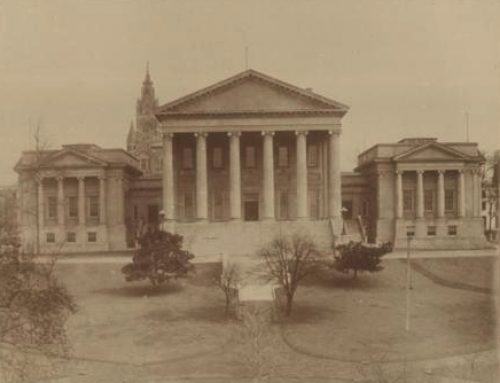 Anyone who testifies regularly as an expert witness, will be expected to, or is responsible for obtaining expert reports that may be used in litigation, should know what is expected as far as the quality of expert reports in the jurisdiction in which they are working in order to avoid having reports excluded. In the opinion we are looking at in this piece, Mountain Valley Pipeline, LLC v. 2.20 Acres of Land, 2023 U.S. Dist. LEXIS 155338, 2023 WL 5673967 (W.D. Va. September 1, 2023), MVP is constructing an interstate natural gas pipeline and acquiring easements related thereto. While there is nothing groundbreaking from an eminent domain law perspective in this case, the item of interest in this particular opinion is that all of the landowner’s witnesses — appraiser, broker, and developer — were all excluded. This goes to show that whether you are the testifying expert, or otherwise involved in putting on a right-of-way case, it is necessary to have a thorough understanding of the applicable expert witness rules for the forum in which you are working. (This article looks at the main federal rules, and their interpretation in the 4th Circuit and particularly the Western District of Virginia, but you should be aware that there are local rules and case law for each court and those should be consulted as applicable).
Anyone who testifies regularly as an expert witness, will be expected to, or is responsible for obtaining expert reports that may be used in litigation, should know what is expected as far as the quality of expert reports in the jurisdiction in which they are working in order to avoid having reports excluded. In the opinion we are looking at in this piece, Mountain Valley Pipeline, LLC v. 2.20 Acres of Land, 2023 U.S. Dist. LEXIS 155338, 2023 WL 5673967 (W.D. Va. September 1, 2023), MVP is constructing an interstate natural gas pipeline and acquiring easements related thereto. While there is nothing groundbreaking from an eminent domain law perspective in this case, the item of interest in this particular opinion is that all of the landowner’s witnesses — appraiser, broker, and developer — were all excluded. This goes to show that whether you are the testifying expert, or otherwise involved in putting on a right-of-way case, it is necessary to have a thorough understanding of the applicable expert witness rules for the forum in which you are working. (This article looks at the main federal rules, and their interpretation in the 4th Circuit and particularly the Western District of Virginia, but you should be aware that there are local rules and case law for each court and those should be consulted as applicable).
The two main rules involved with experts in federal court are FRCP 26, which requires a written report and specifies certain required content of the report, and FRCP 702 which deals with the substance of the report. (Many state courts follow either the same or similar rules as the federal courts, although some states have very different disclosure rules). Of these two rules, FRCP 702 is often the one the most focus is placed on, but inexperienced witnesses and lawyers can easily fall victim to FRCP 26 by either failing to have a written report, or having some form of “report” but failing to satisfy the listed requirements.
FRCP 26 provide that an expert witness retained or specially employed to provide expert testimony in a case is required to prepare and sign a written report that contains:
(i) a complete statement of all opinions the witness will express and the basis and reasons for them; (ii) the facts or data considered by the witness in forming them; (iii) any exhibits that will be used to summarize or support them; (iv) the witness’s qualifications, including a list of all publications authored in the previous 10 years; (v) a list of all other cases in which, during the previous 4 years, the witness testified as an expert at trial or by deposition; and (vi) a statement of the compensation to be paid for the study and testimony in the case.
Fed. R. Civ. P. 26(a)(2)(B). “[A]n expert report should be a comprehensive document that, by itself, provides all the expert’s opinions that will be offered at trial, along with the bases for those opinions.” Samsung Elecs. Co. v. NVIDIA Corp., 314 F.R.D. 190, 198 (E.D. Va. 2016) (citing Campbell v. United States, 470 Fed. App’x 153, 155-56 (4th Cir. 2012); Zaklit v. Global Linguist Solutions, LLC, No. 1:14cv314, 2014 U.S. Dist. LEXIS 139344, at *3 (E.D. Va. Sept. 30, 2014); Sharpe v. United States, 230 F.R.D. 452, 458 (E.D. Va. 2005)). To comply with the rule’s requirements, the report must be “detailed and complete” and “should be written in a manner that reflects the testimony the expert witness is expected to give at trial.” Sharpe, 230 F.R.D. at 459. “The most important element” of the analysis is whether the report contains a complete statement of the expert’s opinions and the bases for his opinions, as the requirement “avoids the disclosure of ‘sketchy and vague’ expert information.” Goodrich v. John Crane, Inc., No. 4:17cv9, 2018 U.S. Dist. LEXIS 235617, at *4-5 (E.D. Va. Aug. 10, 2018) (quoting Washington v. McKee, No. 4:06cv6, 2006 U.S. Dist. LEXIS 53707, at *2 (E.D. Va. Aug. 3, 2006)). The expert report “must include ‘how’ and ‘why’ the expert reached a particular result, not merely the expert’s conclusory opinions.” Id. at *5; Atl. Coast Pipeline, LLC v. 0.07 Acre, 396 F. Supp. 3d 628, 637-38 (W.D. Va. 2019) (quoting Brosville Cmty. Fire Dep’t, Inc. v. Navistar, Inc., No. 4:14-cv-00009, 2014 U.S. Dist. LEXIS 173422, at *3 (W.D. Va. Dec. 16, 2014)).
If the disclosure fails to contain the information required by Rule 26(a)(2)(B), the “Rules impose an ‘automatic sanction’ of exclusion” of the expert witnesses whose reports are deficient. Campbell v. United States, 470 Fed. App’x 153, 156 (4th Cir. 2012) (unpublished decision). That sanction is required “unless the party establishes substantial justification or harmlessness.” Id.; see Fed. R. Civ. P. 37(c)(1) (“If a party fails to . . . identify a witness as required by Rule 26(a) or (e), the party is not allowed to use that . . . witness to supply evidence on a motion, at a hearing, or at trial, unless the failure was substantially justified or is harmless.”); see also Fed. R. Civ. P. 16(f)(1)(C) (authorizing the court to, among other things, prohibit a party from introducing certain matters into evidence for failing to obey a scheduling or other pretrial order). “The party facing sanctions carries the burden of showing that the failure to comply with Rule 26(a) was either substantially justified or harmless.” Campbell, 470 Fed. App’x at 156.
Federal Rule of Evidence 702 and the standards established in Daubert v. Merrell Dow Pharmaceuticals, Inc., 509 U.S. 579, 113 S. Ct. 2786, 125 L. Ed. 2d 469 (1993), further govern admissibility of expert testimony. Rule 702 states:
A witness who is qualified as an expert by knowledge, skill, experience, training, or education may testify in the form of an opinion or otherwise if:
(a) the expert’s scientific, technical, or other specialized knowledge will help the trier of fact to understand the evidence or to determine a fact in issue;
(b) the testimony is based on sufficient facts or data;
(c) the testimony is the product of reliable principles and methods; and
(d) the expert has reliably applied the principles and methods to the facts of the case.
Fed. R. Evid. 702. The court in this case further noted that:
After ensuring that an individual qualifies as an expert, this court has an obligation under Daubert to act as a gatekeeper and ensure that any testimony concerning scientific, technical, or other specialized knowledge offered in support of a party’s claim is “not only relevant, but reliable.” 509 U.S. at 589; Kumho Tire Co. v. Carmichael, 526 U.S. 137, 147, 119 S. Ct. 1167, 143 L. Ed. 2d 238 (1999) (quoting same).
The court went on to also note that:
The court’s role in limiting expert testimony is important: “due to the difficulty of evaluating their testimony, expert witnesses have the potential to be both powerful and quite misleading.” Cooper, 259 F.3d at 199 (citations omitted). Indeed, “given the potential persuasiveness of expert testimony, proffered evidence that has a greater potential to mislead than to enlighten should be excluded.” Westberry v. Gislaved Gummi AB, 178 F.3d 257, 261 (4th Cir. 1999). Importantly, “[t]he gatekeeping role of the district court is particularly pronounced in condemnation proceedings under Rule 71.1.” United States v. 33.92356 Acres of Land, 585 F.3d 1, 8 (1st Cir. 2009).
The court also summarized its previous case law that an expert’s opinions with regard to some hazard incident to the use of the property taken must be supported by some evidence that the hazards are reasonably probable and more than just speculative. Moreover, there must be a nexus between those hazards and/or the public perception in the marketplace—specifically, the marketplace for that property—and a diminution in value of the property. In other words, there must be a causal link between the hazard inherent in the taking and a direct loss in the marketplace. United States v. 760.807 Acres of Land, 731 F.2d 1443, 1448 (9th Cir. 1984); see also Atl. Coast Pipeline, LLC v. 0.07 Acres, No. 3:18-cv-00006, 396 F. Supp. 3d 628, 2019 WL 2527571, at *14-17 (W.D. Va. June 19, 2019) (excluding an expert environmental professional’s opinion about a natural gas pipeline’s effect on property value because the analysis was not linked to the specific property’s value and was therefore irrelevant to the determination of just compensation).
MVP is taking 2.20 acres of easements, which includes 1.50 acres of temporary/permanent access easement and 0.70 acres of additional temporary workspace, from a property consisting of approximately 53 acres on Poor Mountain Road in Roanoke County, Virginia. The access easement is over an existing roadway and provides access to the pipeline being constructed on an adjoining tract. MVP moved to exclude testimony by the landowners’ expert witnesses Dennis Gruelle, Linda DeVito (broker), and Larry Florin (developer).
DeVito and Florin were excluded for essentially not having reports and thus don’t really bear discussion other than to keep a careful eye on FRCP 26 (or other applicable specific court requirements as to the form of the report) in addition to FRCP 702 and Daubert. A letter merely stating the conclusion of the opinion is simply not enough regardless of what is in the expert’s mind. (Making sure to have the required data for FRCP 26 readily at hand to be immediately included in reports can make you appear much more professional, and thus more valuable, as an expert witness.)
While the appraiser’s designated testimony managed to avoid the obvious Rule 26 pitfall, it runs afoul of Rule 702. Although no part of the pipeline is being constructed on the subject property in this case, the landowners’ appraiser opined that the property was damaged in the amount of $275,000 allegedly because the “prime views, natural settings, and privacy are all impaired by the project and the property cannot justify premium rural residential use after the project given the loss of privacy, diminished quality of view vistas, the increase in noise, and the use of the road for two-way heavy vehicle and machinery traffic to maintain a natural gas pipeline built on steep slopes.” The appraiser was apparently designated to testify that that the “national audience,” which relies on “great views,” would “pass” on the property after the MVP project, resulting in an alleged 50% damage to the remainder. The court indicated that the appraiser did not use any comparable sales with an access road, and that the only paired-sales studies mentioned involved natural gas pipeline easements, not access roads.
In excluding the landowners’ appraiser, the court stated as follows:
MVP does not challenge Gruelle’s qualifications to testify as an expert. Instead, it argues that his opinions are inadmissible because of several failures and problems with his methodology.
First, it contends that Gruelle’s valuation opinion is inadmissible because it violates the “well-established rule that, where part of an owner’s land is taken, just compensation does not include any diminution in value of the remainder caused bv the use of adjoining land of others for the same project.” (MVP’s Mot. Exclude 4, Dkt.No. 10 (citing Campbell v. United States, 266 U.S. 368, 371, 45 S. Ct. 115, 69 L. Ed. 328 (1924)). The court agrees.
“The just compensation assured by the Fifth Amendment to an owner, a part of whose land is taken for public use, does not include the diminution in value of the remainder caused by the acquisition and use of adjoining lands of others for the same undertaking.” Campbell, 266 U.S. at 371; W. Va. Pulp & Paper, 200 F.2d at 103 (noting rule in Campbell that there can be no award of compensation on account of use of lands taken from others); E. Tenn. Nat. Gas Co. v. 2.93 Acres, No. 4:02-cv-0179, 2007 U.S. Dist. LEXIS 67445, 2007 WL 2688414, at *3-4 (W.D. Va. Sept. 13, 2007) (applying Campbell rule and excluding testimony by Gruelle that property was damaged by use of adjoining lands of others for natural gas pipeline); United States v. Kooperman, 263 F.2d 331, 332 (2d Cir. 1959) (“[T]he doctrine of severance damage does not include damage to one owner which may result or flow from the use to which the Government may put other lands in the same project.”). The reason for the rule in Campbell is that the party acquiring a property via condemnation should not be liable for damages caused by the use of a different property, just as an adjoining owner may devote his lands to the same use without liability to the defendant landowner. As the Campbell court explained, “If the former private owners had devoted their lands to the identical uses for which they were acquired by the United States or to which they probably will be put, as found by the court, they would not have become liable for the resulting diminution in value of plaintiff’s property. The liability of the United States is not greater than would be that of the private users.” 266 U.S. at 371-72.
In addition to this error, the court concludes that Gruelle’s opinion is unreliable for other reasons. For example, Gruelle does not consider the fact that the easement lies over an existing access road to a neighboring property. Gruelle’s assumption that the access road changes the highest and best use of the property—from “high-end” residential development with a “national market,” to single-family residential use (Gruelle Report 13, 25)—is completely unsupported. Gruelle does not offer, for example, paired sales or studies that isolate the effect of an access road, and he does not provide data that an access road prevents residential development. Moreover, Gruelle’s report fails to acknowledge that the entire width of the access easement is not permanent. (Gruelle Report 20.) He thus values the whole easement as permanent, rather than expressing any opinion on the rental value of the temporary part of the easement. (Gruelle Report 32.)
Finally, for his after value, Gruelle uses sales of properties suitable only for single-family residential because of lack of road frontage, steep topography, or high voltage transmission lines. (Gruelle Report 25-28, 30-31.) These conditions are not analogous to an access road that already exists. Gruelle also cites paired-sales studies, but the studies he cites are to properties encumbered by a natural gas pipeline, not an access road.
For these reasons, Gruelle’s opinion is unreliable, is not the product of reliable principles and methods, Fed. R. Evid. 702(c), and will be excluded.
This is not the outcome you want if you are the expert whose opinion is being challenged or are responsible for obtaining expert reports that may be used in litigation. If you are an expert, making sure that you comply with the applicable expert rules helps prevent your opinion from being excluded. Similarly, if you are obtaining expert reports such as appraisals that may be used in litigation, it is very helpful to understand what will be required so that the expert reports you obtain will be admissible if needed. Experienced right-of-way counsel can help you with this.
If you enjoyed this article, please feel free to click the subscribe button below if you are not already a subscriber.
Ross Greene is a firm shareholder and chair of the firm’s Eminent Domain / Right of Way Practice Group. He focuses his practice in the areas of eminent domain, right of way, real estate, wills, trusts, estates, and business matters.







Leave A Comment